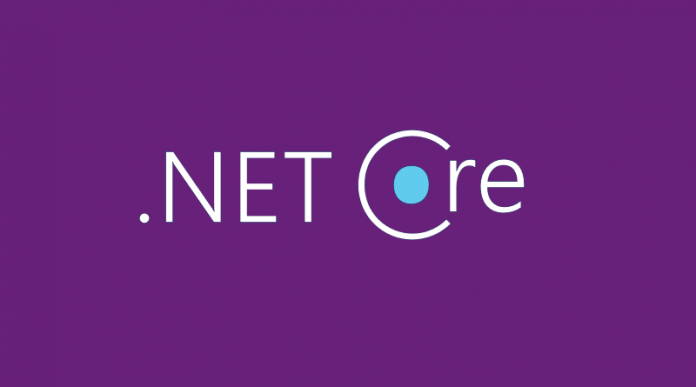.Net Core Interview Questions – Most Asked Interview Question
.Net Core Interview Questions Set 1
#1 What is .NET?
.NET is a framework for software development. It is just like other software development frameworks (J2EE). It provides runtime capabilities and a rich set of pre-built functionality in the form of a class library and API. This .NET framework is an environment to build, deploy, and run web services and other applications. The .NET framework contains three main parts:
- Common Language Runtime
- Framework classes
- ASP.NET
#2 What are the different components of .NET?
Following are the components of .NET
- Common Language run-time
- Application Domain
- Common Type System
- .NET Class Library
- .NET Framework
- Profiling
#3 How many languages are supported by .NET at the present time?
When .NET was introduced the first time, it supports many languages like VB.NET, C#, COBOL, and Perl, etc. At the present time, it supports almost 44 languages.
#4 What is the delegate in .NET?
A delegate in .NET is similar to a function pointer in other programming languages like C or C++. A delegate allows the user to encapsulate the reference of a method in a delegate object. A delegate object can then be passed in a program, which will call the referenced method. We can even use a delegate method to create a custom event in a class.
#5 How is it possible for .NET to support many languages?
The .NET language code is compiled to Microsoft Intermediate Language (MSIL). The generated code is called managed code. This managed code is run in the .NET environment. So after compilation, the language is not a barrier and the code can call or use the function of another language also.
#6 What are the important components of .Net?
The components of .Net are Common language run-time, .Net Class library, Application domain, Common Type System, .Net framework, Profiling, etc. However, the two important components are the Class library and the Common Language Runtime.
CLR provides building blocks for a wide variety of applications. The class library consists of a set of classes that are used to access common functionality. The functionality can be shared among different applications.
#7 What is ASP.Net?
ASP .Net is a part of .Net technology and it comprises of CLR too. It is an open-source server-side technology that enables the programmers to build powerful web services, websites, and web applications.
ASP stands for Active Server Pages.
#8 Difference between interface and abstract class in .NET?
| Interface | Abstract Class |
| An interface merely declares a contract or behavior that implementing classes should have. | An abstract class provides a partial implementation for functionality that must be implemented by the inheriting entities. |
| An interface may declare only properties, methods, and events with no access modifier. | An abstract class declares fields too. |
#9 What is the state management in ASP.NET?
State management is a technique that is used to manage a state of an object on different requests. It is very important to manage state in any web application. There are two types of state management systems in ASP.NET.
- Client-side state management
- Server-side state management
#10 What is manifest in the .NET Framework?
Manifest is used to store assembly metadata. It contains all the metadata which are necessary for the following things.
- Version of assembly
- Security identity
- Scope of the assembly
- To resolve references to resources and classes
#11 What are ASP.NET security controls?
- <asp: Login>: Provides a login capability that enables the users to enter their credentials.
- <asp: LoginName>: Allows you to display the name of the logged-in user.
- <asp: LoginStatus>: Displays if the user is authenticated or not.
- <asp: LoginView>: provides various login views depending on the template that has been selected.
- <asp: PasswordRecovery>: Emails the users the lost passwords.
.net core interview questions Set 2
#12 What is the HTTP Handler?
Every request into an ASP.NET application is handled by a specialized component called HTTP handler. It is the most important component for handling ASP.NET application requests.
It uses different handlers to serve different files. The handler for web page creates the page and control objects, runs your code, and then renders the final HTML.
Following are the default HTTP handlers for ASP.NET:
- Page Handler(.aspx): Handles web pages
- User Control Handler(.ascx): It handles web user control pages
- Web Service Handler(.asmx): Handles web service pages
- Trace Handler(trace.axd): It handles trace functionality
#13 What is Caching?
Caching means storing data temporarily in the memory so that the application can access the data from the cache instead of looking for its original location. This increases the performance of the application and its speed. System.Runtime.Caching namespace is used for Caching information in .Net.
Given below are the 3 different types of Caching:
- Page Caching
- Data Caching
- Fragment Caching
#14 List the events in the page life cycle.
- Page_PreInit
- Page_Init
- Page_InitComplete
- Page_PreLoad
- Page_Load
- Page_LoadComplete
- Page_PreRender
- Render
#15 List the major built-in objects in ASP.NET?
- Application
- Request
- Response
- Server
- Session
- Context
- Trace
#16 What are the different types of cookies in ASP.NET?
Session Cookie – Resides on the client machine for a single session until the user does not log out.
Persistent Cookie – Resides on a user’s machine for a period specified for its expiry, such as 10 days, one month, and never.
#17 What are tuples in .Net?
A tuple is a fixed-size collection that can have elements of either the same or different data types. The user must have to specify the size of a tuple at the time of declaration just like arrays.
#18 What are EXE and DLL?
EXE and DLL are assembly executable modules.
EXE: It is an executable file that runs the application for which it is designed. When we build an application, a .exe file is generated. Therefore the assemblies are loaded directly when we run a .exe. But a .exe file cannot be shared with other applications.
DLL: It stands for dynamic link library that consists of code that needs to be hidden. The code is encapsulated in this library, an application can have many DLLs and can also be shared with other applications.
#19 What are the parameters that control most of the connection pooling behaviors?
The following parameters control the connection pooling behavior:
- Connect Timeout
- Max Pool Size
- Min Pool Size
- Pooling
#20 How many elements a tuple can hold?
A tuple can hold up from 1 to 8 elements. In the case of more than 8 elements, then the 8th element can be defined as another tuple. Tuples can be specified as a parameter or return type of a method.
#21 What are the components of ADO.NET?
The components of ADO.Net are Dataset, Data Reader, Data Adaptor, Command, connection.
#22 How do you check whether a DataReader is closed or opened?
There is a property named “IsClosed” property that is used to check whether a DataReader is closed or opened. This property returns a true value if a Data Reader is closed, otherwise, a false value is returned.
These were the .net core interview questions Stay tuned to learn more.
Check it out Latest Jobs for .Net Developer: Click here
If You Want To Get More Daily Such Jobs Updates, Career Advice Then Join the Telegram Group From Given Link And Never Miss Update.
Join Telegram Group of Daily Jobs Updates for 2010-2021 Batch: Click Here
Why You’re Not Getting Response From Recruiter?: Click here
How To Get a Job Easily: Professional Advice For Job Seekers: Click here
Cognizant Latest News: Up To 20K+ Employees Will Be Hired: Click here
COVID-19 Live Tracker India & Coronavirus Live Update: Click here
Why Remove China Apps took down from Play store?: Click here
Feel Like Demotivated? Check Out our Motivation For You: Click here
List of Best Sites To Watch Free Movies Online in 2020: Click here
5 Proven Tips For How To Look Beautiful and Attractive: Click here























